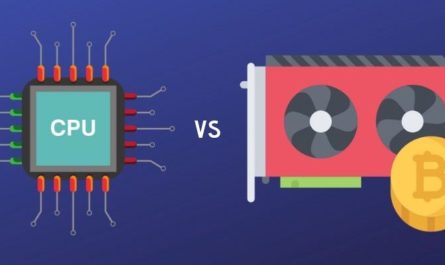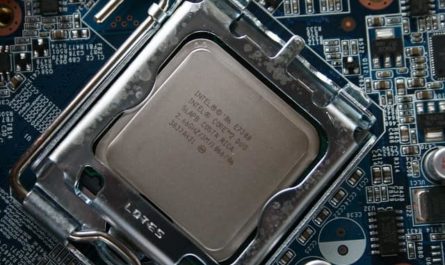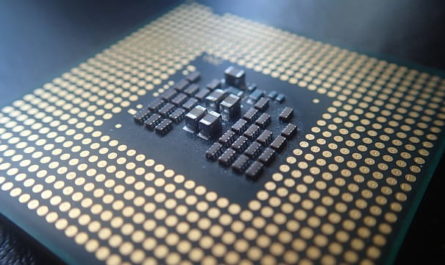Hello there, in this article we will discuss the different types of CPU or processor. There are many different ways in which CPUs are differentiated which we will learn thoroughly in this article.
So dive down in this article to learn more about this topic. Don’t forget to watch the bonus video at the end of this article.
Contents
What is the CPU?
The computer CPU also referred to as the processor is the most important component of a computer. A CPU is also referred to as the “brain” of the computer.
A CPU do all the instructions and calculations that it received by the input devices of the computer. After receiving the data CPU processes them in the desired way to give output.
A CPU performs various logical, controlling, arithmetic and input/output operation according to the instructions.
The form, design, and implementation of CPUs changed various times in the past history but the basic fundamentals of its operation are still the same.
Many modern desktop CPUs have up to 32 CPU cores while many servers have up to 100 CPU cores. The speed at which computer software operates is very dependent upon how powerful is the CPU.
So for getting the best out of your computer, it is very important to know about different types of CPU.

Related: What is an Arithmetic Logic Unit (ALU) and its Functions?
Types of CPU
Number of CPU Cores
The CPUs are differentiated by the number of cores it has. In the older days, CPUs only had one core which limited them to only in a single task.
With the evolution in technology number of CPU cores are also increased to make computers faster and efficient. In today’s time, we have CPUs that have up to 100 CPU cores, each of which works on a different task.
A core works on one task while another core works on a different task. So the more cores a CPU has, the faster and efficient the computer will be.
- Single Core CPUs
Single core CPUs are the oldest computer CPUs. These CPUs can only focus on one operation at a time so they were not very good at multi-tasking.
This leads to a decrease in the performance of the computer whenever more than one application was running.
Although only one operation processes at a time while keeping the next tasks waiting until the first task gets finished.
A single core CPU has only a single core on the chip running a single thread at any one time. The term “Single Core” became common after the emergence of the multi-core CPUs.
- Dual-Core CPUs
Dual-core CPUs are the first of the multi-core CPUs. A dual-core CPU is a single CPU that has two cores and two caches controlled onto a single chip thus functioning like two CPUs in one CPU chip. Unlike single core CPUs where the processor had to switch back and forth for managing many tasks, dual-core CPUs can handle multi-tasking much more easily. Dual core CPUs are faster than single-core CPUs but not as fast as the quad-core and other higher core CPUs.
- Quad-core CPUs
Quad-core CPUs are the further refinement of the multi-core CPUs succeeding Dual core CPUs. Like dual-core CPUs, quad-core CPUs can also split their workload between its many cores.
This allows, even more, faster multitasking than dual-core CPUs. This does not mean that a single task will be four times faster, but processing four tasks will be faster at a time.
These types of CPUs are more useful for people that need to run a lot of different programs at the same time.
And in the same way, there are CPUs with many cores like 6 cores, 8 cores, 10,12,14,16,18, and up to 72 cores which are generally seen in server CPUs.
Usage
Yes, CPUs are also differentiated on the basis of their usage. Since every device has different requirements, they also need different CPUs for them.
These CPUs are divided on the basis of the devices on which CPUs are going to be used.
- Desktop CPUs

These are the CPUs that are used in daily usage desktop computers. These CPUs have up to 32 CPU cores or maybe more than that.
Sometime these CPUs may also include integrated graphics with them.
- Laptop CPUs

These are the CPUs that are used in portable laptops. These CPUs also include integrated graphics. CPUs in laptops are not replaceable.
The CPUs made for laptops consume less power and also generates less heat as compared to desktop.
- Server CPUs

These CPUs are used in all time working servers. These CPUs can have huge numbers of CPU cores up to 78 or more. Yet, these CPUs can also be used in desktops.
These CPUs are made in such a way, that they consume less power and generate less heat as these CPUs can have to work in 24-hour working servers, hence they are also very expensive.
Manufacturer
Intel and AMD both are the leading CPU manufacturer in the market. These manufacturers have also distinguished there CPU by different families. These families differ by their release time, usage, and other things.
- Intel

Intel has divided its CPUs in about 75 families. Some of the famous Intel CPU families are
- Core i3
- Core i5
- Celeron
- Core i9
- Core i7
- Pentium
- Xeon
- Atom
And many more.
- AMD

Similarly, AMD has also divided its CPUs in about 58 families. Some of the famous AMD CPU families are
- Ryzen 3
- A10
- A12
- Ryzen 5
- Ryzen 7
- Athlon
- EPYC
- Opteron
And many more.
Related: Parts of CPU with pictures | What’s inside the CPU case?
Conclusion
There are many ways in which CPUs are differentiated. The differentiation for types of CPU can depends on the number of CPU cores, Usage of CPU, Manufacturer, architecture and on many other things.
CPUs differentiated on the basis of the number of cores have different numbers of CPU cores, like single core, dual core, quad core, etc.
CPUs differentiated on the basis of their usage divides them by the platform on which they are used, like desktop, laptop, server, etc.
Manufactures as Intel and AMD have also divided their CPUs on a different basis.
I hope you like this article about the Types of CPUs. If you find this article worth reading then don’t forget to share it with your friends.
Sharing is Caring
- Best Graphics Card Under Rs 15000 | Massive GeForce GTX 1650 - September 15, 2019
- Best Graphics Card Under Rs 10000 | Is it even possible - September 11, 2019
- Best Graphics Card Under Rs 20000 in 2019 | GTX 1660 is AMD killer - September 8, 2019




